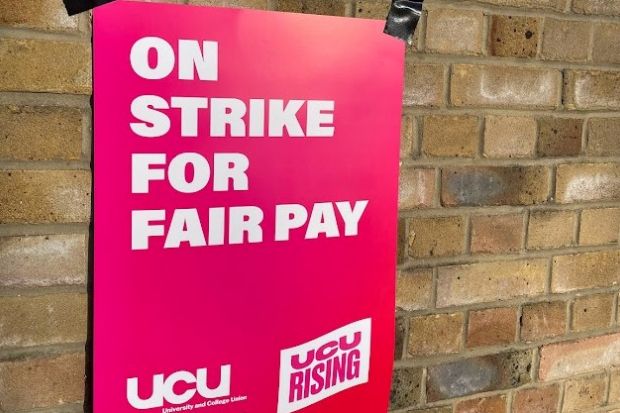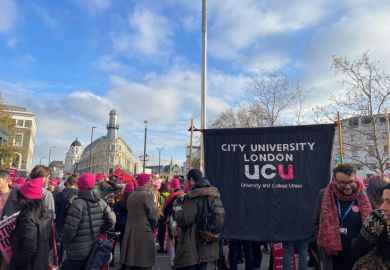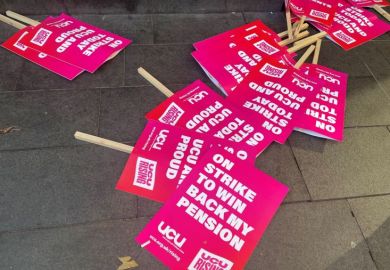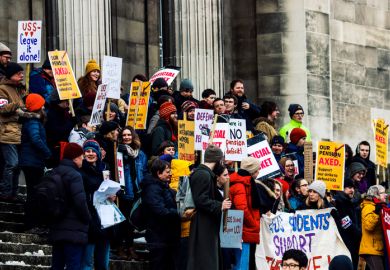UK universities could face strikes in the new year, after the main sector union voted to ballot for industrial action over pay.
The poll, agreed on by the University and College Union’s higher education committee, focuses on the Universities and Colleges Employers Association’s offer of a rise of between 2.5 and 5.7 per cent.
The decision comes after a consultative ballot in which union members rejected the pay offer by 68 per cent to 32 per cent, with 53 per cent saying that they would be prepared to take industrial action.
A UCU spokesperson said: “UCU’s higher education committee met yesterday to agree the union’s next steps following the result of the consultative ballot and has agreed to launch a statutory industrial action ballot in the new year over pay.”
More strike action would come on top of walkouts and marking boycotts spanning several years in disputes over pay, pensions and working conditions.
But whether UCU will be able to secure support for a walkout remains to be seen. Thousands of jobs are expected to be axed across the UK higher education sector in coming months amid a mounting financial crisis, and employers are likely to warn that any further expenditure on salaries would translate into increased redundancies.
And the last round of strikes came to an end when only 43 per cent of members voted in a ballot, missing the 50 per cent minimum turnout requirement.
The new Labour government has pledged to repeal the Conservative-era law which demands this level of turnout, but is yet to act upon this promise.
Ucea highlighted that the consultative ballot had a turnout of only 27 per cent of members, and so represented about 8 per cent of the total academic workforce.
Raj Jethwa, the employer association’s chief executive, said that the union’s decision to call a ballot was “deeply disappointing”.
“While the result is hardly a surprise, it is not necessarily representative of the views of staff working in the sector, including UCU’s own membership,” Mr Jethwa said.
“Employers can genuinely relate to frustrations about sector funding and finances, but industrial action over a pay uplift that will not and cannot change will not provide a solution.”
Mr Jethwa warned that the ballot could “undermine” joint work under way with all five sector unions on addressing issues relating to workload and equality pay gaps, as well as a review of the pay spine. Ucea has said that this work was contingent on unions not balloting for industrial action.
Most universities have already paid an opening £900 instalment of this year’s pay rise, with the rest due in March. But a record number of institutions have opted to delay the pay increase, citing financial pressures.
Meanwhile UCU’s own staff who are members of the Unite union have just completed three days of strike action, in a dispute with managers that includes a row over pay negotiations. Unite members are balloting for further industrial action.
Register to continue
Why register?
- Registration is free and only takes a moment
- Once registered, you can read 3 articles a month
- Sign up for our newsletter
Subscribe
Or subscribe for unlimited access to:
- Unlimited access to news, views, insights & reviews
- Digital editions
- Digital access to THE’s university and college rankings analysis
Already registered or a current subscriber?








